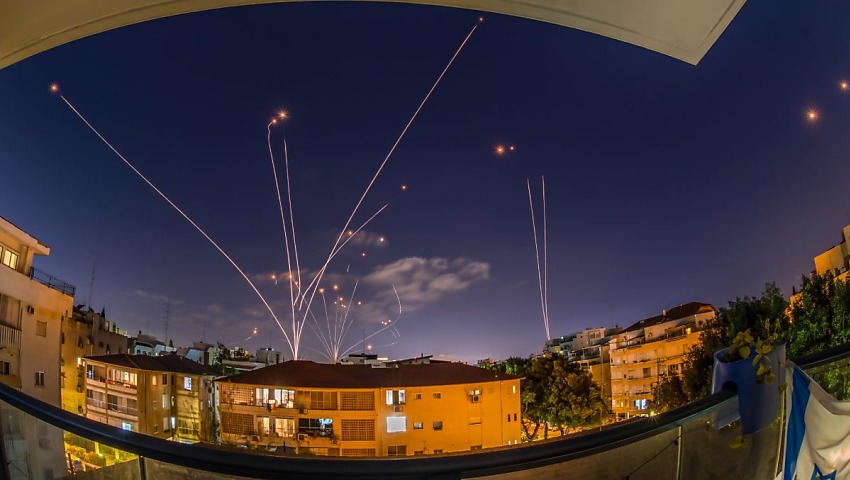Opinion: Contemporary conflict continues to evolve at an ever-accelerating pace. Keeping up with these changes and the doctrines that support the conduct of tactical and strategic operations is becoming increasingly difficult, leaving Australia, in particular, incredibly vulnerable.
Iran’s attack on Israel over the weekend was notable for three reasons: Iran typically does not engage in direct conflict with Israel but instead prefers to use proxies such as Hezbollah, Hamas, and the Houthis. The attack was a failure, with Israel and its allies destroying around 99 per cent of the more than 300 projectiles that were launched against them, and it represented a kind of warfare that Australia is woefully underprepared for.
Iran and its proxies in Iraq, Yemen, and Lebanon launched approximately 170 uncrewed aerial vehicles (UAV), around 120 ballistic missiles, 30 cruise missiles, and numerous rockets at Israel – a nation that is roughly a third the size of Tasmania.
According to Israel Defense Forces (IDF) spokesperson Daniel Hagari, none of the UAVs reached Israeli territory. Twenty-five of the 30 cruise missiles were taken down by IDF fighter jets, partner aircraft, and Israeli air and missile defences and the bulk of the ballistic missiles were also destroyed with only a few slipping the net and hitting Nevatim Air Force Base with minimal damage.
Israel and its allies withstanding this attack marks one of the most impressive feats of integrated air and missile defence the world has ever seen.
Watching on from Australia, the thing that struck me the most about the attack as it unfolded was that Australia would be neither prepared to wage war in this fashion nor to defend against it. It also demonstrated the value of having a strong, well-funded, sovereign defence industry such as Israel possesses. In other words, it demonstrated the capabilities that we lack and the value of having them.
The Australian Defence Force (ADF) currently lacks offensive uncrewed abilities in the air, maritime, and land domains and has no current generation land-based integrated air and missile defence (IAMD) in service.
It is worth noting that Army has taken delivery of some NASAMS short-range ground-based air defence systems through its LAND 19 program and has successfully conducted firings in 2023, Air Force’s AIR 6500 Phase 1 project for a Joint Air Battle Management System selected its strategic partner last year – its AIR 6502 program for medium range ground-based air defence achieved first past approval – and Air Force has plans for AIR 6503 for advanced high-speed missile defence (for defeating hypersonic projectiles). But as it stands, none of these are in a position to help right now.
The other aspect of the weekend’s defensive air battle – and Israel’s military capability more broadly – is that it is supported by a strong sovereign defence industry comprised of some 150 companies, including significant players like Elbit Systems.
In fact, three of the key pillars of Israel’s defence sector are actually government-owned corporations being Israeli Aerospace Industries, Israeli Military Industries Systems, and Rafael Advanced Defense Systems.
These three companies are responsible for aircraft, drones, satellites, military vehicles, conventional arms, and advance defence electronics systems. You might know them better by some of their products such as the Iron Dome and David’s Sling that played vitally important roles in the defence against Iran and its proxies over the past few days.
A well-funded, well-supported, resilient sovereign defence industrial base that includes local manufacture is a national strategic asset and the Israeli sector is an example of how to do this right. Israel’s shipping has been disrupted by Houthi attacks since November last year – imagine the difference if that disruption had compromised key supply chains such as munitions to the point that it could seriously impact their IAMD capability?
That could easily happen to Australia and is one of the reasons why it is so important that Australian sovereign missile manufacture capability gets up and running as soon as possible.
Should Australia face an adversary that was able to bring to bear the capability that Iran deployed against Israel, we would be hard pressed to defeat it. The attack over the weekend was a chilling demonstration of 21st century warfare that highlights the exact capability gaps and needs that the Defence Strategic Review has identified.
Our challenge now is for Defence to receive the funding it needs to address these deficiencies. Perhaps this may be addressed in the Defence Integrated Investment Program, but then again perhaps not. Only time will tell.
Ben Roberts is the founder and principal of Saga Strategic Communication and has worked for a number of Australian defence companies since 2018.






